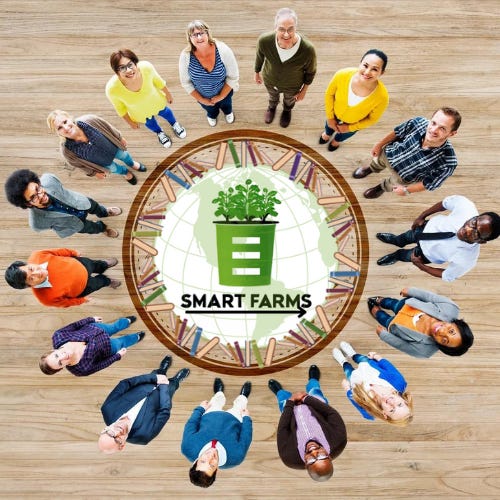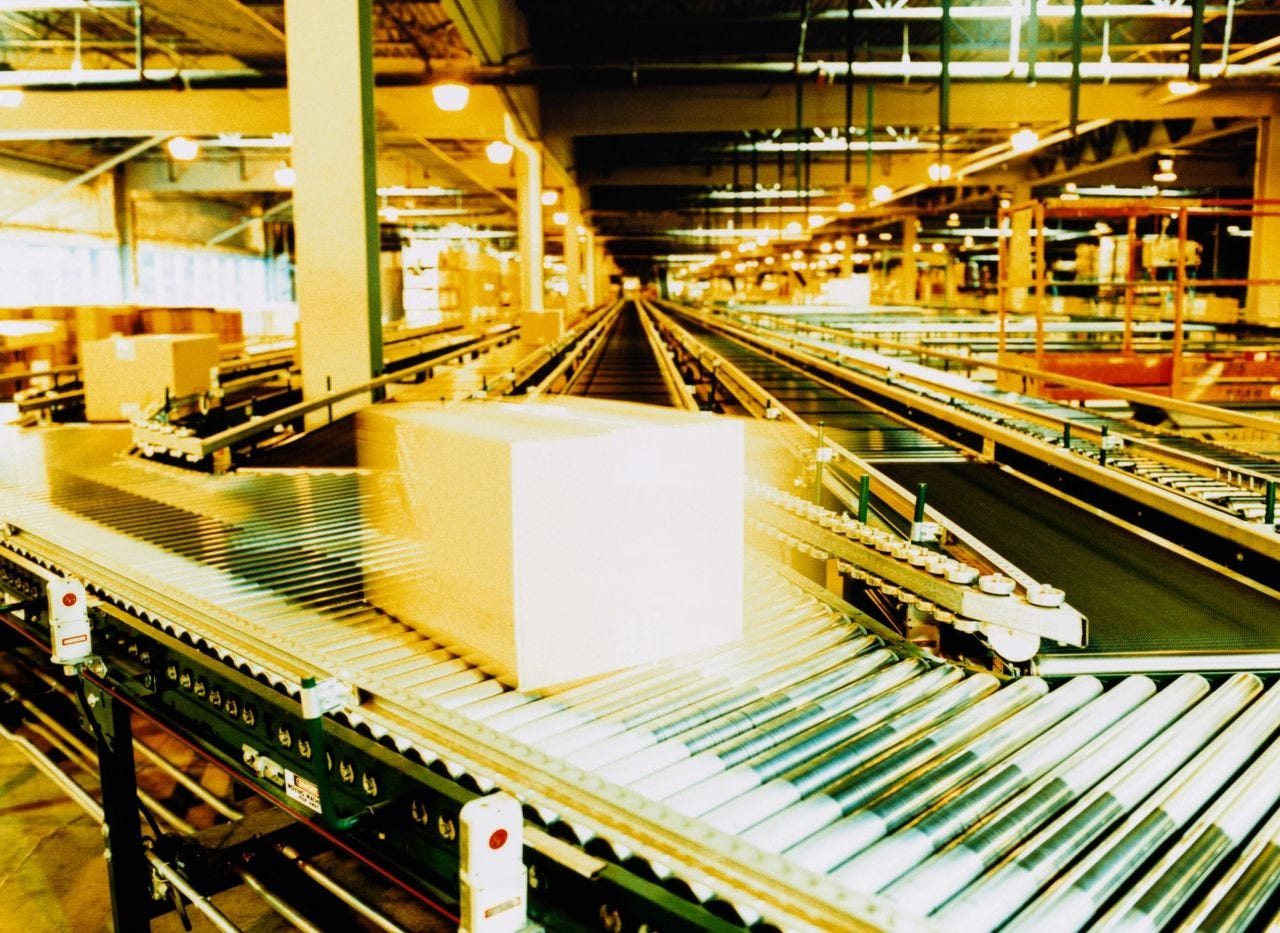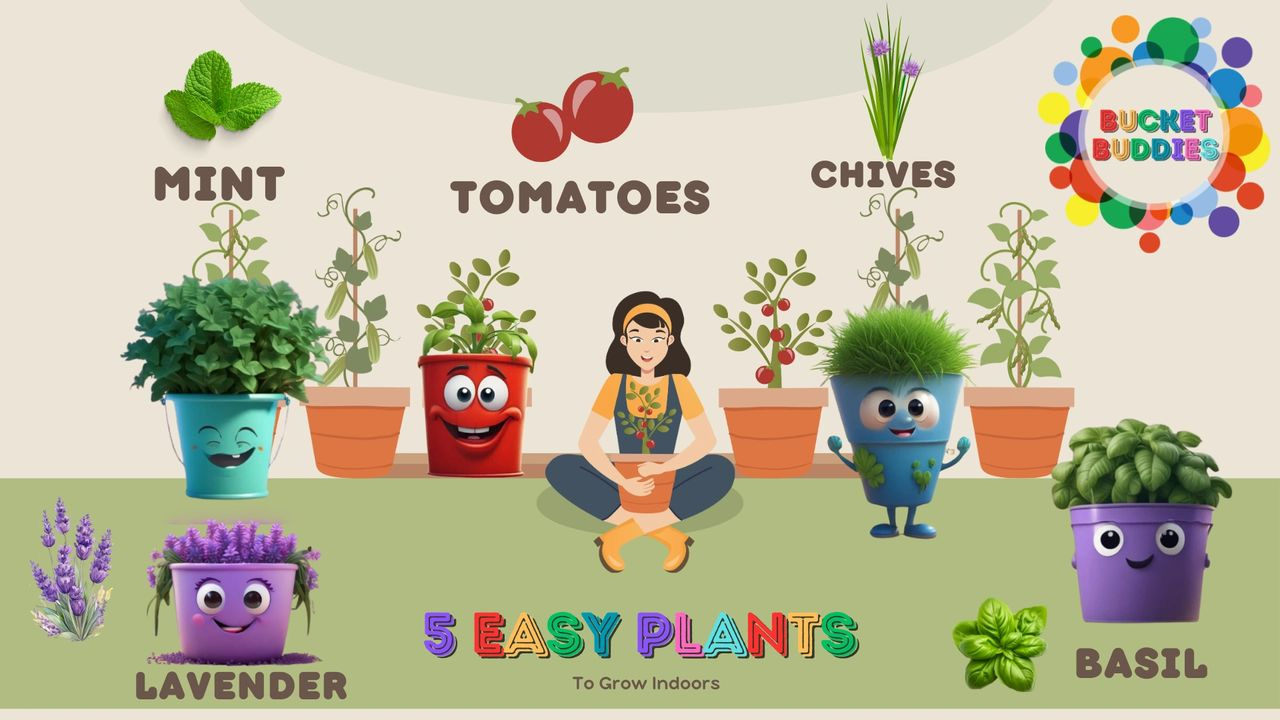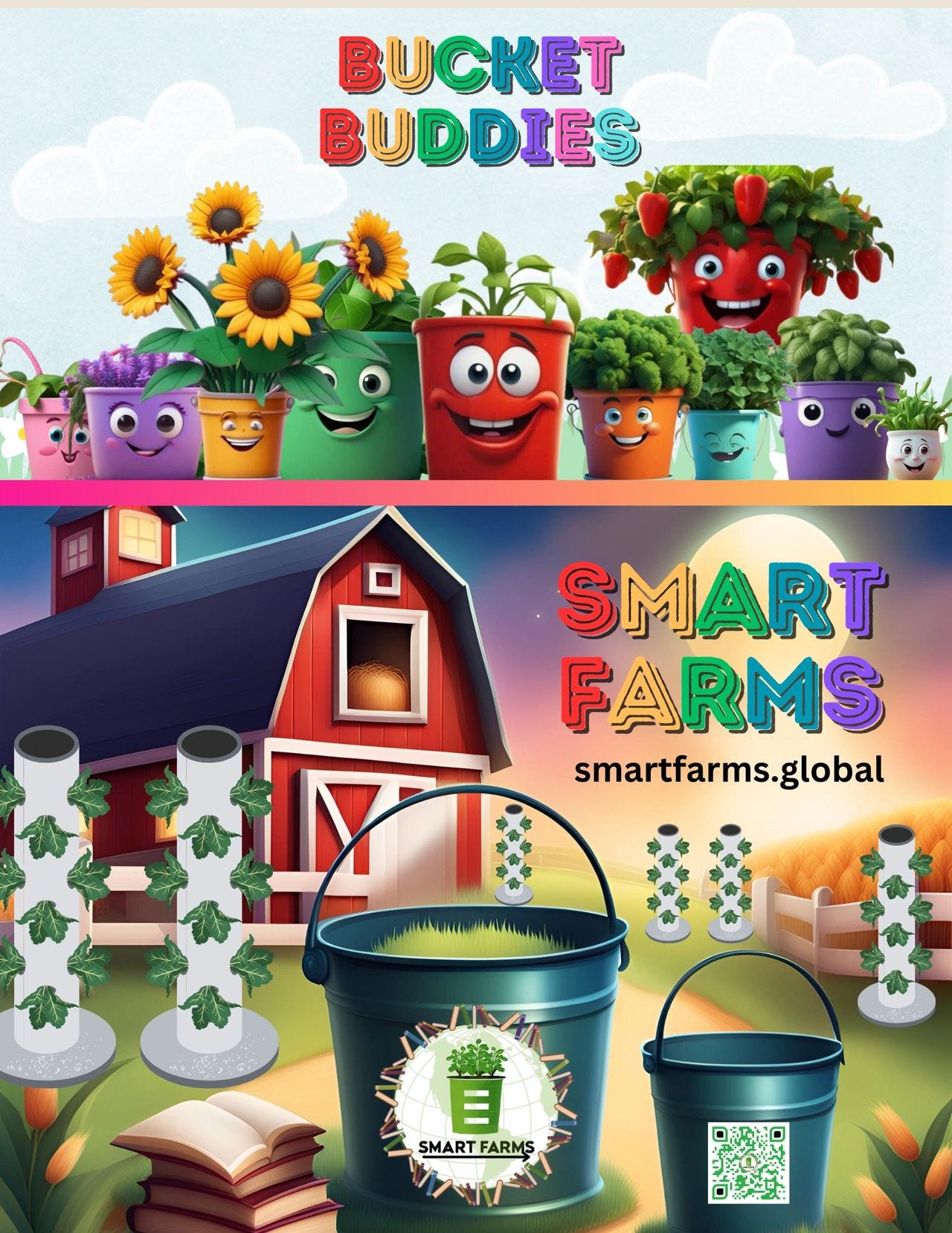WEB3 Meets Farming: The Vision of Smart Farms
Building Self-Sustaining Communities through Localized Food Production
In an era of global supply chains, mass distribution, and industrial farming practices, food production has become increasingly disconnected from the people it serves. Our food is grown far from our homes, shipped across vast distances, and subjected to unsustainable methods to maximize profits at the expense of the environment and our health. Mike Smart, the founder of Smart Farms and Meta-Builders, is pioneering a bold vision to redefine food distribution in America by creating localized, self-sustaining communities where food is grown and consumed within a 10-mile radius. By combining innovative agricultural practices with Web3 technology, Smart Farms aims to empower communities, enhance food security, and reduce the environmental impact of our food systems.
The Problem: Unsustainable Global Food Distribution
The global food distribution system is riddled with inefficiencies and detrimental effects on both people and the planet. According to research, the average food item travels over 1,500 miles before reaching the consumer, contributing to greenhouse gas emissions, resource depletion, and environmental degradation . The reliance on industrial farming practices further exacerbates these problems, as large-scale monocultures deplete soil health, require excessive water usage, and lead to the widespread use of synthetic fertilizers and pesticides. To squeeze profits from this unsustainable system, companies often cut corners on food quality, resulting in nutrient-deficient produce and processed foods that harm our health.
Additionally, rising costs of transportation, driven by fluctuating fuel prices, only compound the issue. The COVID-19 pandemic revealed the vulnerabilities of this global system, as supply chain disruptions led to food shortages and increased costs for consumers. As the world faces ongoing challenges from climate change, resource scarcity, and geopolitical instability, it's clear that our current food system is no longer viable.
READ ORIGINAL ARTICLE BELOW:
The Solution: Zones of Service and Localized Food Production
Mike Smart's vision for Smart Farms is rooted in the concept of Zones of Service, where communities produce the majority of their food within a 10-mile radius. By leveraging advanced agricultural technologies such as aeroponics and aquaponics, these zones would create highly efficient, vertical farms that produce food year-round, regardless of external weather conditions. Each zone would be designed to support a specific number of people, with facilities tailored to produce the fruits, vegetables, herbs, and proteins necessary to meet the community's dietary needs.
These self-sustaining zones would eliminate the need for long-distance food transportation, significantly reducing carbon emissions and energy consumption. More importantly, they would restore the connection between people and their food, allowing communities to take control of their food supply and reduce their reliance on external systems.
At the heart of this vision is the belief that food security is the foundation of strong, resilient communities. By decentralizing food production and empowering local farmers, Smart Farms aims to create a future where communities are self-sufficient, food is fresh and nutritious, and the planet's resources are protected for future generations.
Meta-Builders: Empowering Communities through Web3 Technology
Mike Smart's background in community building and governance models, particularly as the founder of the Web3 service business Meta-Builders, plays a crucial role in bringing the Smart Farms vision to life. Meta-Builders empowers individuals and communities by leveraging Web3 technology to create decentralized, self-sovereign systems. In the context of Smart Farms, Web3 technology can be used to facilitate transparent governance, fair resource distribution, and decentralized decision-making within each Zone of Service.
For example, decentralized autonomous organizations (DAOs) could be established to manage the day-to-day operations of each zone, ensuring that all members of the community have a voice in decision-making. Tokenomics models, such as those being developed by Meta-Builders, could be used to incentivize sustainable farming practices, reward community contributions, and create local economies that are resilient and self-sustaining.
Moreover, the integration of Web3 technology into Smart Farms would provide communities with greater control over their data and resources, fostering a sense of ownership and accountability. This approach aligns with the broader movement towards self-sovereignty, where individuals and communities take control of their own destinies, free from the constraints of centralized systems.
The Spiritual Aspect: Taking a Step Back and Going Within
In many ways, the vision of Smart Farms is not just about transforming food systems—it's about transforming society as a whole. At its core, this vision is a call to take a step back from the frenetic pace of modern life and go within, reconnecting with the values that truly matter. Just as individuals embark on spiritual journeys to find inner peace and purpose, communities must also embark on a collective journey to create self-sustaining systems that nourish the body, mind, and soul.
By localizing food production, Smart Farms encourages communities to slow down, focus on their immediate surroundings, and build deeper connections with the land and with one another. This shift mirrors the spiritual practice of mindfulness, where individuals become more present and attuned to their inner selves. In a world driven by consumerism, convenience, and external validation, the Smart Farms vision offers a path towards a more intentional, grounded way of life.
Bucket Buddies: Educating the Next Generation
Mike Smart's passion for education and community engagement is also evident in the Bucket Buddies initiative, which aims to teach children about the importance of sustainable farming and food security. By introducing young people to the principles of growing their own food, Bucket Buddies fosters a sense of responsibility and stewardship for the environment. Through engaging characters and stories, children learn about the interconnectedness of nature, the importance of pollinators, and the benefits of companion planting.
In many ways, Bucket Buddies is an extension of the Smart Farms vision, as it seeks to empower the next generation to take ownership of their food systems and create a more sustainable future. By instilling these values early on, Smart Farms and Bucket Buddies are laying the groundwork for a society that values self-sufficiency, community resilience, and environmental stewardship.
The Path Forward: Building a New Food System
The challenges facing our global food system are immense, but so are the opportunities for transformation. By creating localized Zones of Service, utilizing advanced agricultural technologies, and integrating Web3 governance models, Smart Farms is pioneering a new way of thinking about food production and distribution. This vision is not just about feeding people—it's about empowering communities to take control of their own destinies, protect the environment, and build a future that is sustainable, resilient, and just.
In the words of Mike Smart, "We need to take a step back and bring it in." Just as individuals embark on spiritual journeys to find balance and harmony within, communities must also embark on a journey to create self-sustaining systems that reflect the values of sustainability, self-sovereignty, and interconnectedness. Through Smart Farms, Meta-Builders, and Bucket Buddies, Mike Smart is leading the way towards a future where food security, community resilience, and environmental stewardship are not just ideals, but realities.
By redefining food distribution, empowering communities, and fostering a deeper connection with the land, Smart Farms offers a blueprint for a more sustainable and equitable future. It's time to take that step back, go within, and build the world we want to see—one Zone of Service at a time.






